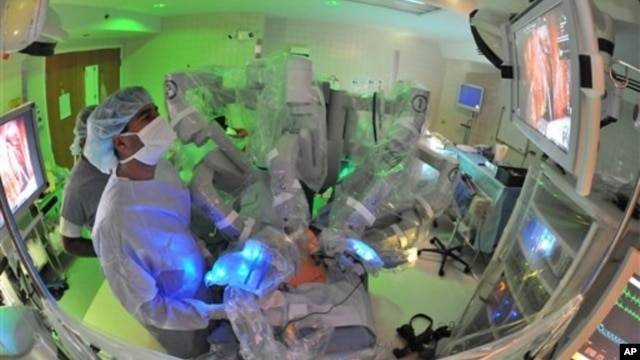High-Fat Diet May Raise Prostate Cancer Death Risk Everyday Health
Monday, June 01, 2015
Prostate cancer patients with an unhealthy, high-fat diet have a significantly higher risk of death from the disease, a new study suggests.
"There is currently very little evidence to counsel men living with prostate cancer on how they can modify their lifestyle to improve survival. Our results suggest that a heart-healthy diet may benefit these men by specifically reducing their chances of dying of prostate cancer," study senior author Jorge Chavarro, of the Harvard School of Public Health, said in a Harvard news release.
The study involved nearly a thousand U.S. doctors who had developed prostate cancer and were followed for an average of 14 years after diagnosis.
Chavarro's team assessed the men's eating habits to see if they had an unhealthy "Western" diet -- high in red and processed meat, high-fat dairy products and "refined" grains -- or a healthy diet high in vegetables, fruit, legumes (such as beans), fish and whole grains.
While the study couldn't prove cause-and-effect, the researchers found that men who scored highest in terms of Western eating habits were 2.5 times more likely to die from their prostate cancer, and 67 percent more likely to die from any cause, than those who scored lowest.
In contrast, men who scored highest in terms of healthy eating habits were 36 percent less likely to die from any cause than those who scored lowest, the researchers said.
Monday, June 01, 2015
Prostate cancer patients with an unhealthy, high-fat diet have a significantly higher risk of death from the disease, a new study suggests.
"There is currently very little evidence to counsel men living with prostate cancer on how they can modify their lifestyle to improve survival. Our results suggest that a heart-healthy diet may benefit these men by specifically reducing their chances of dying of prostate cancer," study senior author Jorge Chavarro, of the Harvard School of Public Health, said in a Harvard news release.
The study involved nearly a thousand U.S. doctors who had developed prostate cancer and were followed for an average of 14 years after diagnosis.
Chavarro's team assessed the men's eating habits to see if they had an unhealthy "Western" diet -- high in red and processed meat, high-fat dairy products and "refined" grains -- or a healthy diet high in vegetables, fruit, legumes (such as beans), fish and whole grains.
While the study couldn't prove cause-and-effect, the researchers found that men who scored highest in terms of Western eating habits were 2.5 times more likely to die from their prostate cancer, and 67 percent more likely to die from any cause, than those who scored lowest.
In contrast, men who scored highest in terms of healthy eating habits were 36 percent less likely to die from any cause than those who scored lowest, the researchers said.




